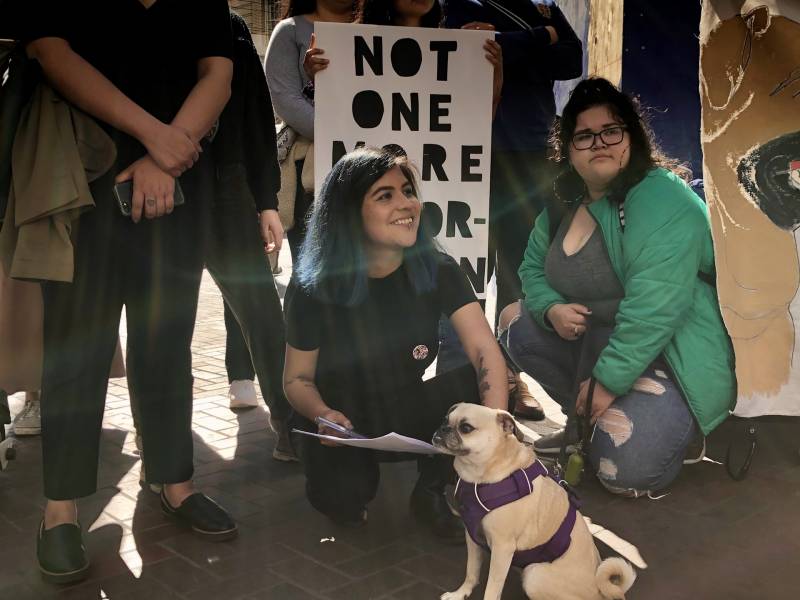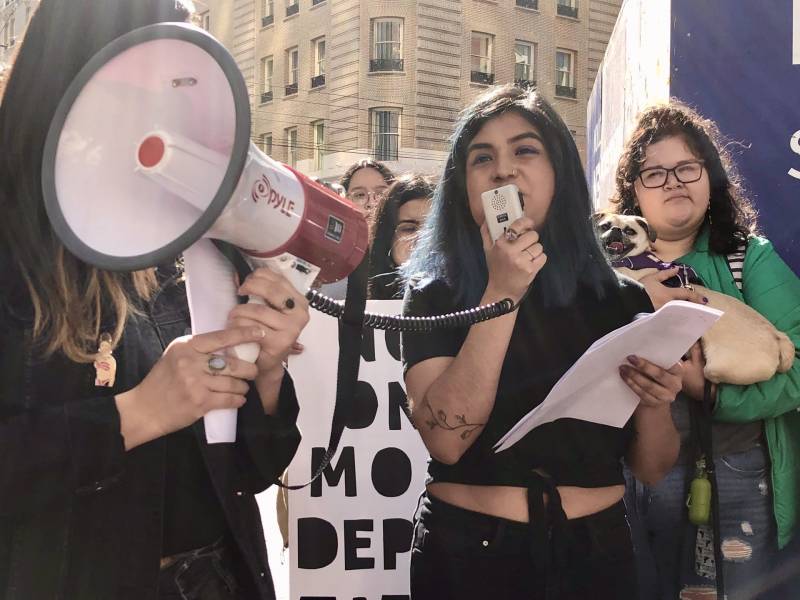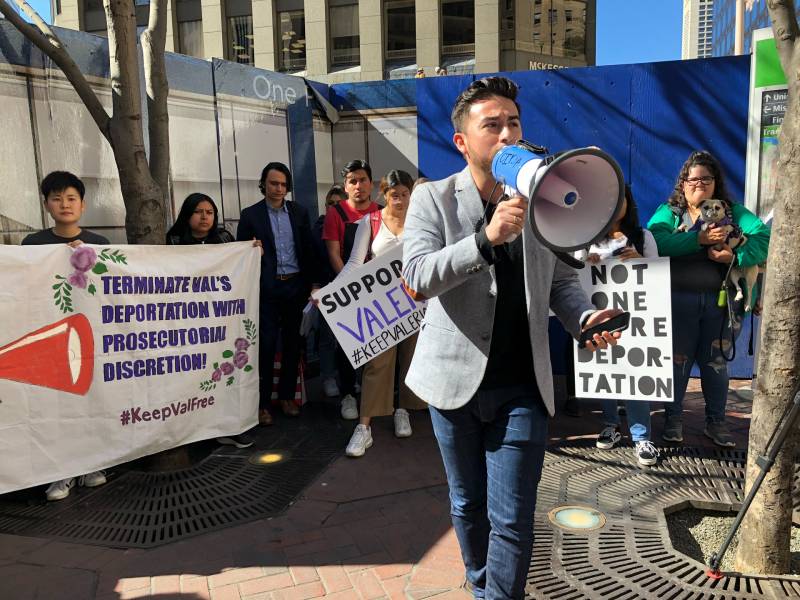Dozens of people rallied Tuesday in downtown San Francisco to urge immigration authorities not to deport a 23-year-old UC Berkeley graduate who works with the city’s Office of Civic Engagement and Immigrant Affairs.
Supporters called on the Trump administration to drop deportation proceedings against Valeria Suarez Rojas, an asylum-seeker from Peru, using an authority known as prosecutorial discretion.
Suarez Rojas, who identifies as gender non-binary and uses the pronouns "they/them," fears persecution if sent back to Peru, where they said LGBTQ people face violence and discrimination.
“I found refuge in my community. I found refuge in other queer migrant folks that show me what home looks like,” Suarez Rojas said into a megaphone with trembling hands. “And the Department of Homeland Security wants to rip that apart from me.”

Under the Trump administration, immigration authorities have used prosecutorial discretion in fewer cases than under previous administrations, but it remains an option for deportation relief, said Luis Angel Reyes Savalza, the attorney representing Suarez Rojas.
With the U.S. undocumented population estimated at more than 10 million, immigration officials lack the resources to prosecute every case they encounter and have the authority to dismiss or delay deportation proceedings when they see fit.
People who have long-standing ties to a community, relatives who are U.S. citizens and other characteristics that merit remaining in the country may be granted favorable discretion, according to the nonprofit American Immigration Council.
Suarez Rojas, who arrived in the U.S. with a tourist visa at age 16, pursued a degree in social welfare at UC Berkeley and recently graduated. Their mother and brother are lawful permanent residents in the U.S.


